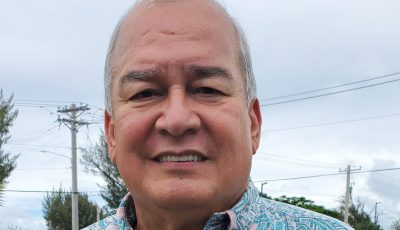The genuine meaning of ‘We the people’
A few days ago I introduced to your readers the concepts of “public” and “public interest” connected to public policies and issues. As intriguing as it presents, these concepts are found in dictionary definitions and those alone could satisfy our understanding and agreement. Or the dictionary definition could be the primary source that causes all our misguided conceptions and misunderstanding on concepts that should have been drawn from alternative grounds. The “public” dimension in public policy signify both its time and place. No public policy could ever exist without its time and its place, hence the “public” is a real entity and has real meaning for those effectuating the promulgation of public policies and by those intended beneficiaries of the actions approved by our CNMI Constitution.
The preamble to all the constitutions of the 50 states in the United States follow a similar pattern. They introduce the clause “We the people” and followed by declaring their intention to “ordain and establish” their constitution. The CNMI Constitution is no different: “We, the people of the NMI, grateful to almighty God for our freedom, ordain and establish this Constitution as the embodiment of our traditions and hopes for our Commonwealth in political union with the United States of America.” It is worth noting also that our Constitution makes specific compelling reasons connecting our desires in that we value the embodiment of our traditions and hopes for our Commonwealth. So, the place called the Northern Mariana Islands is a community with traditions and hopes for our future. These traditions and hopes for our Commonwealth are the compelling reasons that make our Constitution signify our place and time. The language we used appears concise, favored, and flawlessly instrumental. Certain ends of government having been identified, our Constitution is to be the instrument for attaining our traditions and hopes for our Commonwealth.
Why did the framers of the CNMI Constitution express their gratitude to almighty God for the value of our traditions and hopes for our Commonwealth? I would say that they were expressing an attitude toward self-government different from the other jurisdictions. They expressed in succinct words how they felt about the place they inhabited as an important part of what they meant when they said “we the people.” They had not come to know each other as “we” simply “in order to”; they knew each other as “we” in relation to the place. So in constituting ourselves as a people, we could not pretend to do it in purely instrumental terms.
Our Constitution is more than a legal document. By our Constitution, we offered an expressive act by which separate, individual people constitute themselves as a people. A people so constituted is, in turn, the only genuine source of meaning for the word “public,” which, in Latin, meant “of the people.” It does not actually mean “of people.” Hence, people in their own individuality never become public. They only do that by a deliberate action of constituting themselves as “the people.”
The NMI Constitution was finalized and signed on Dec. 5, 1976, and voters ratified it on March 6, 1977, and took effect Jan. 9, 1978. So as far as what “public” and “public interest” mean in our present discussion, could it be that what we are referring to is the time and place dating back to the formative time of this Constitution? At that time and place the people comprised mostly the Chamorro and Carolinian. Our place is the same NMI, but the “we the people” only refers to certain people. What other alternate thesis could be had to explain and demonstrate what the CNMI Constitution really refers to its “we the people.” The “public” and “public interest” seems to have a place and time in our Constitution. Could this be the most acceptable and agreeable connotation concerning the point in question? Does this make the case for all indigenous people of this NMI, the “we the people” in our Constitution? The “public” and the “public interest” appear to be as expressively constituted in the CNMI Constitution?
Francisco R. Agulto
Kannat Tabla, Saipan



























